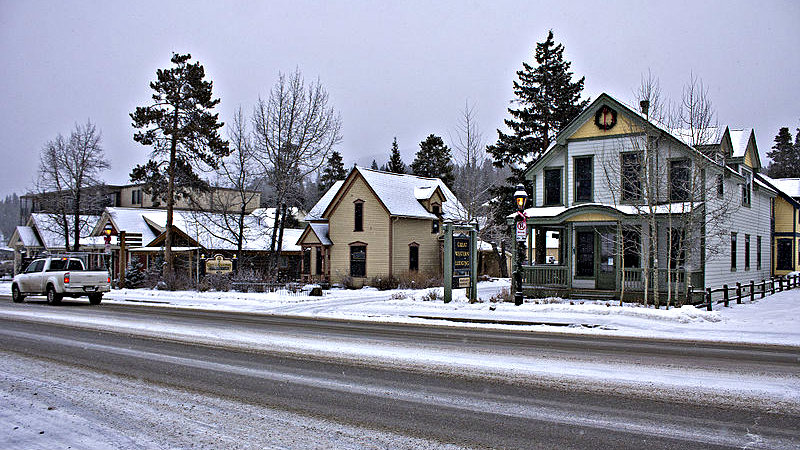
 The lack of fast and reliable Internet in Colorado's mountainous and rural areas could be a major barrier to economic growth in those areas in coming years.
The lack of fast and reliable Internet in Colorado's mountainous and rural areas could be a major barrier to economic growth in those areas in coming years.
That's according to a group of local governments that just put out a plan to improve the Internet connectivity from Aspen to Craig -- and all of the counties in between.
Liz Mullen, Executive Director of the Northwest Colorado Council of Governments, the group leading the effort, says these counties in mountain and rural areas have ageing populations and struggle to attract young families to move in.
Mullen says providing strong Internet service doesn't make business sense for commercial providers like Comcast and CenturyLink since many of the towns are sparsely populated.
Local governments, according to Mullen, need to find a way to help the service providers get into those communities.
Mullen's group has seen the Front Range grow into a hotbed for technology startups.
The Front Range also enjoys Internet speed that's far superior to service available in much of northwest Colorado, according to the NWCCOG's broadband plan released on Dec. 13.
Mullen says faster and more reliable Internet is necessary to attract 21st Century businesses and entrepreneurs to northwest Colorado.
According to the broadband plan, the U.S. falls in the middle of the pack when it comes to broadband speeds in developed countries and within the U.S., Colorado ranks 22nd.
"In sum, we find northwest Colorado broadband sits at the tail end of a middling state in a middling country,” according a statement written in the plan. “The NWCCOG has decided that simply isn’t good enough.”
The plan could also become a model for the rest of the state because the Governor's Office of Information Technology is closely watching the progress in northwest Colorado and encouraging other regions to take similar steps.
Each town will have to figure out a way to comply with a contentious 2005 state law that made it difficult for local governments to provide any type of telecommunications service.
The law requires a citizens’ vote to before the local government moves forward.
"The constraints of the law are not clear,” According to the NWCCOG plan. “Many communities choose to avoid any intervention in telecommunications rather than risk crossing boundaries in the law that may or may not be there."









